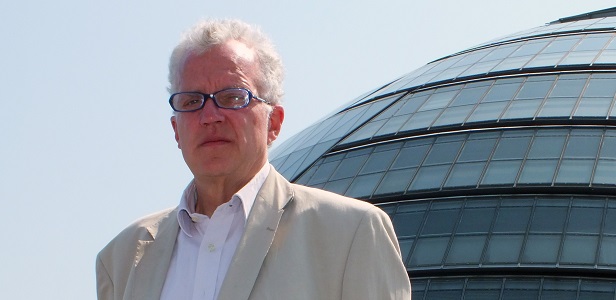Car Sick, solutions for our car-addicted culture, Lynn Sloman, Green Books, £10.95.
Post war transport policy of both main political parties has been underpinned by an apparent truism: economic growth will inevitably engender increased demand for transport. Alistair Darling, the recently departed transport secretary, used to parrot this ‘fact’ whenever he was asked about the environmental consequences of his policies.
In fact, as everyone who leaves their front door knows, the notion that we can continue travelling more and more is untenable. The roads are gridlocked, the train lines full and airports are a nightmare.
For politicians, the answer is ‘sustainable’ growth but no one has ever quite managed to define what that means. No wonder most people simply despair, feeling a bit guilty about taking those 1p trips on Ryanair, but not really knowing what else to do. In response, the environmental lobby tends to get very hair-shirtist about it, arguing that we should all get rid of our cars, and take buses or walk and cycle.
The brilliance of Lynn Sloman’s book is that she does not go for such simplistic answers. She recognises that there are times when it is inevitable that people need to use their cars such as when oldies like us need to be whisked to hospital for treatment, but in this meticulously researched book she comes up with a host of solutions that are feasible and relatively easy to implement, both at the individual and societal levels.
On the way, she reveals a series of fascinating facts which suggest it does not have to be like this. For example, we take it for granted that the Dutch, Germans and Danes have always been more enthusiastic about cycling than the British and that’s why hopping on a bike is an integral part of their culture. Not so. In Holland, for example, as in Britain, cycling began to decline in the 1960s, a decade in which the number of cyclists halved. The difference is that the Dutch government decided to do something about it, spending large sums in retro-fitting city streets to accommodate cycle lanes and ensuring that cycle parking was available at train stations. In Denmark, they made every school accessible safely for pupils cycling to them. Therefore it is not good enough for the British government simply to argue that we cycle less in Britain because of cultural differences. In London, for example, there has been a marked revival of cycling due to a number of factors, not least the congestion charge and the publication of free maps by Transport for London.
Sloman goes through all the various modes of transport pointing out ways to get people out of their cars which is to the advantage of all of us, as Londoners found after the congestion charge reduced traffic levels in the city. Even buses can be made more popular by marketing and the provision of better information. Rural areas where many older people are rendered virtually housebound by the lack of public transport can be served with taxibuses, a kind of hybrid between the bus and the taxi, that is far cheaper than the latter.
But why bother? That is the most interesting part of the book. Communities based on the car are less cohesive, more individualistic and their residents less healthy and happy. The transformation of the centre of Copenhagen from a gridlocked network of highways in the 1960s to today’s wonderful hurly burly of pedestrianised streets with cafes and a vibrant street life is well captured by the before and after photos taken by a local photographer. While the pictures from the sixties show a glum population going about their business sullenly, the contemporary ones are full of people smiling and looking contented.
Sloman’s book is a handbook for change and her book is particularly relevant for us oldies as we have a real vested interest. Not only do we get free bus travel at 60 which is pretty useless if there aren’t any local services or they all stop at 6pm, but many of us are likely to lose our driving licences for health reasons. In a way, therefore, we have the most to gain from making the world less dependent on those bloody four wheel boxes even if we are addicted to them now.
